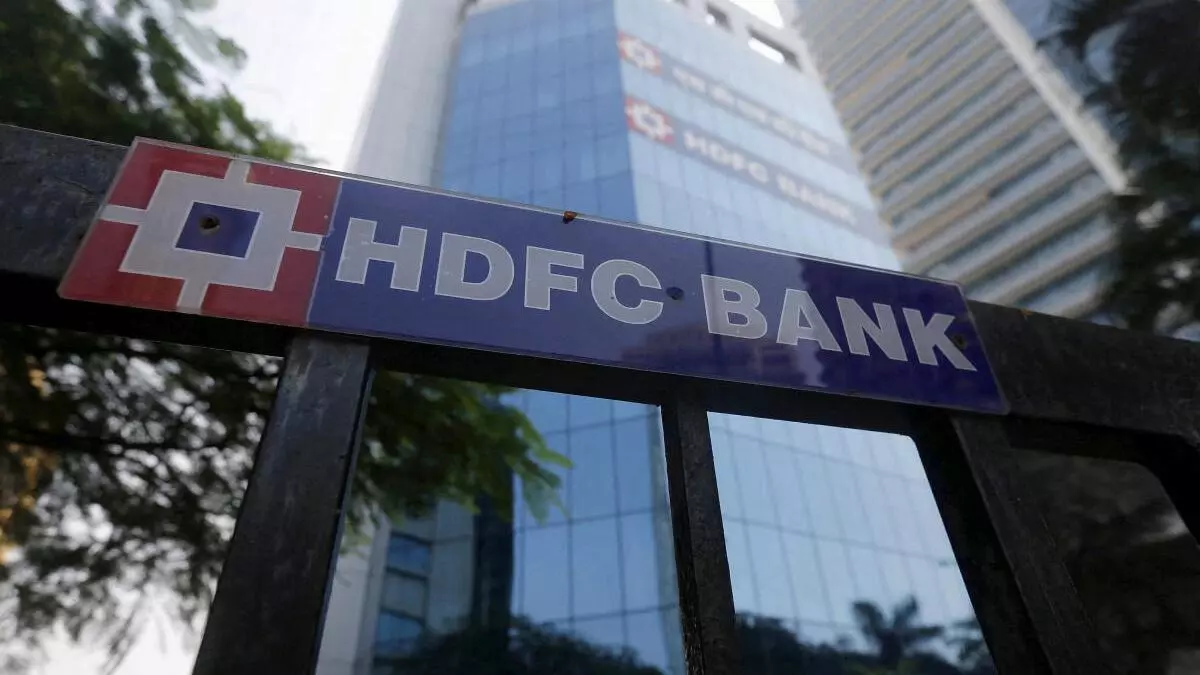Banks to brighten India company earnings amid IT uncertainties
Banks and consumer firms are expected to pay first-quarter earnings in India buoyed by faster economic activity, eased input costs, and a decade-long bad loans at lenders, while the outlook for the country’s software exporters is clouded by global headwinds.
Indian banks have largely remained aloof from the global crisis in the industry with its heavy reliance on domestic markets. Meanwhile, the country’s consumer goods and capital goods companies are expected to benefit from commodity prices that have eased from the peak seen after Russia’s invasion of Ukraine.
“Across industries, we’re seeing costs come down sharply, so that will be reflected in earnings,” said Varun Saboo, head of equity at Mumbai-based Anand Rathi Share and Stock Brokers Ltd. Saboo puts earnings growth in the ballpark at 15%. For companies included in the NSE Nifty 50 benchmark. Asia’s largest exporter of software services Tata Consulting Services Limited On Wednesday, the first-quarter earnings season for Indian companies will begin.
conglomerate Reliance Industries Ltd, which ranks 10th in the Nifty 50, will see its operating profit rise in the June quarter, on the back of strong performance in the oil to chemicals and digital services sectors, according to analyst estimates compiled by bloomberg.
banking boom
The RBI said in its Financial Stability Report that the ratio of bad loans in Indian banks was at its lowest level in a decade at 3.9% at the end of March 2023. It expects the ratio to fall further to 3.6% by March 2024.
The four largest private lenders in the Nifty 50 – HDFC BankAnd ICC BankAnd Axis bankAnd Kotak Mahindra Bank It may see quarterly earnings growth of between 18 percent and 38 percent. Its net interest margins are expected to remain at or around the 4 percent mark, among the highest in Asia. Central Bank of Indiathe nation’s largest lender by assets, will see quarterly earnings more than double, according to estimates compiled by bloomberg.
The central bank’s interest rate increases also increased the lending margins of local lenders. Potential deposit repricing could cut some of the margin, although the impact will be limited until the central bank starts cutting interest rates.
Rajesh Chiruvu, chief investment officer at equity-backed LGT Wealth India in Liechtenstein, expects net interest margins to contract by about 30 basis points for the segment until the core rate falls, which is not expected at least until the end of September, according to bloomberg reconnaissance. Cheruvu said margin and return on assets remained at “too good to be true” levels.
consumption engine
Easing cost pressures from lower energy and materials prices along with improved supply chains after easing Covid-related restrictions on consumers, capital goods and cement companies is likely to help improve earnings while the pick-up in volumes is expected to continue.
Lower crude prices will benefit paint makers’ profits, and lower palm oil prices will help makers of soaps, detergents and canned foods, according to Ajay Thakur, consumer sector analyst at Anand Rathi.
Higher retail prices for petrol and diesel will help margins at refiners, with India’s top three oil marketing companies Indian Oil Corporation. , Bharat Petroleum Corp. And Hindustan Petroleum Corporation. Expect increased profits.
Technology headwinds
The government-brokered bailout of crisis-hit Credit Suisse Group AG by UBS Group AG, and the collapse of two mid-sized US banks earlier this year, have raised fears of turmoil in the global banking industry, which could force many financial firms to to give up its appreciation. Spending on IT services.
India’s $245 billion tech sector, with major exposure to banks, could face price pressures, big deal wins and margins. The top four software service providers – Tata Consulting Services LimitedAnd Infosys LtdAnd HCL Technologies Ltd And Wipro Ltd Obtaining more than a quarter of its revenues from the financial sector.
Analysts at Jefferies and BNP Paribas wrote in separate notes that higher wages could reduce margins. But some believe that risk is factored into the valuations. The NSE Nifty IT Index is currently trading at less than 24 times earnings, down from a record high of around 39 times earnings at the start of 2022.
“It’s been a year and a half of this fear of recession, fear of cut spending being talked about in the market. For me, IT is available at reasonable valuations,” said Siddarth Bamre, Head of Research at Religare Broking Ltd.
